In 2017 drama-thriller film Aftermath, Arnold Schwarzenegger plays a man devastated by the loss of his wife and pregnant daughter in a plane crash. He sets out to get an apology from the air traffic controller responsible, but soon becomes dangerously obsessed. American actress Maggie Grace plays Christina, the wife of the controller and a woman caught in the middle of the two men’s journeys, struggling to support her guilt-stricken husband yet also put in jeopardy by his victim’s anger.
Still only 33, Grace has been a familiar face on the big and small screen for years as part of the TV show Lost, film series The Twilight Saga and, perhaps most famously, as Liam Neeson’s daughter in Taken. She talks to us about her newest famous co-star and finding the right balance in Hollywood.
What first attracted you to the role of Christina?
I met with the director, Elliott Lester, because I really loved his film Nightingale – it was really inspired. Also the writer Javier Gullón, who wrote Enemy […] it was such a cool group of people. Also, Scoot McNairy is such an ‘actor’s actor’ that I’ve wanted to work with forever. I’ve always loved his work, he just disappears into things.
I was so excited about [Aftermath], and it was just such a unique concept – not only being based loosely on a true story, but also the idea of these two people’s lives colliding in a Rashomon-style way.
You also had a very personal connection during filming…
After I signed on, I found out they were shooting in my home town in Ohio, which is really bizarre because no movies shoot there! It’s a little town outside of Columbus called Worthington. We ended up shooting right across the street from my fourth-generation family store on the Main Street there, and we even had lunch in my high school cafeteria! So the whole thing was like a very real episode of Black Mirror. It was like there was this rip in the time/space continuum, and I travelled to this alternate dimension, in a life I could have had, where I had a husband and child in Ohio, as if I’d never left. It was really bizarre!
Towards the end of the film, you share one particularly intense scene with Arnold Schwarzenegger. What was that like to shoot?
It was pretty intense. It was probably 4:00 in the morning; I called it ‘The Sicilian Funeral Scene’! I remember [producer] Darren Aronofsky had flown in that night, and the magician David Blaine was with him doing coin tricks in between takes! It was truly, hilariously bizarre.
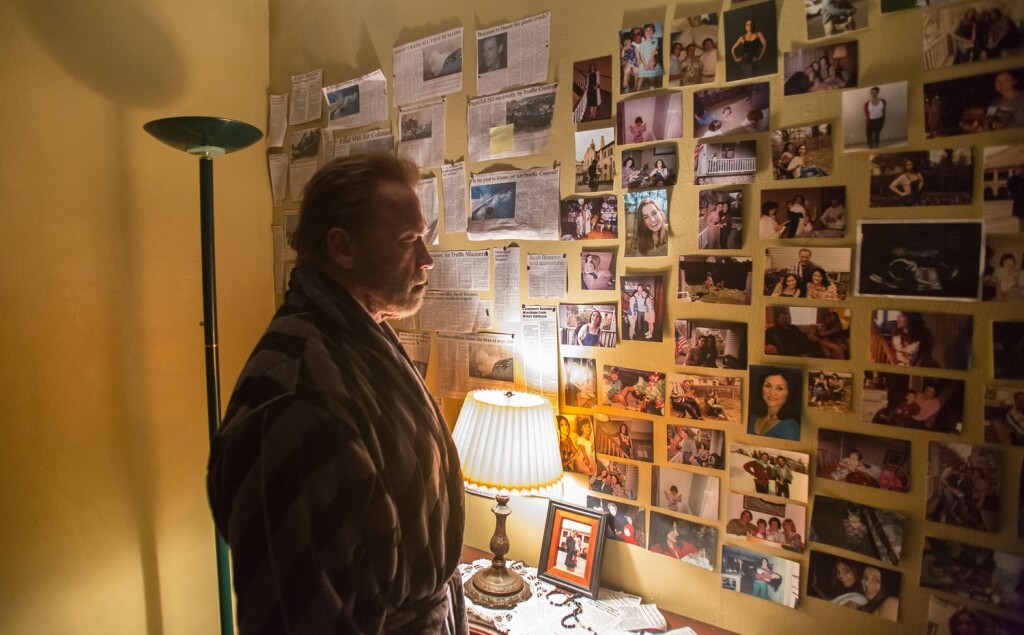
This is a very different sort of film for Schwarzenegger. How was he to work with?
In person he’s certainly a character – he’s a larger-than-life personality. It’s a really interesting time for him to go in this direction; it’s certainly his most vulnerable performance that I can think of, by far. It’s interesting to view him in that way.
It’s a film that asks a lot of complicated questions about vengeance. What did you take away from that?
To me, although this is a thriller and it’s entertaining and suspenseful, it really spoke to restorative justice, as opposed to this punishment model that we have in our society, and the idea of vengeance. I don’t think [Schwarzenegger’s character] is in any way aided by vengeance. I struggle with that sometimes making action films, so I appreciate that this had a more nuanced attitude towards the ripple effects of grief and vengeance.
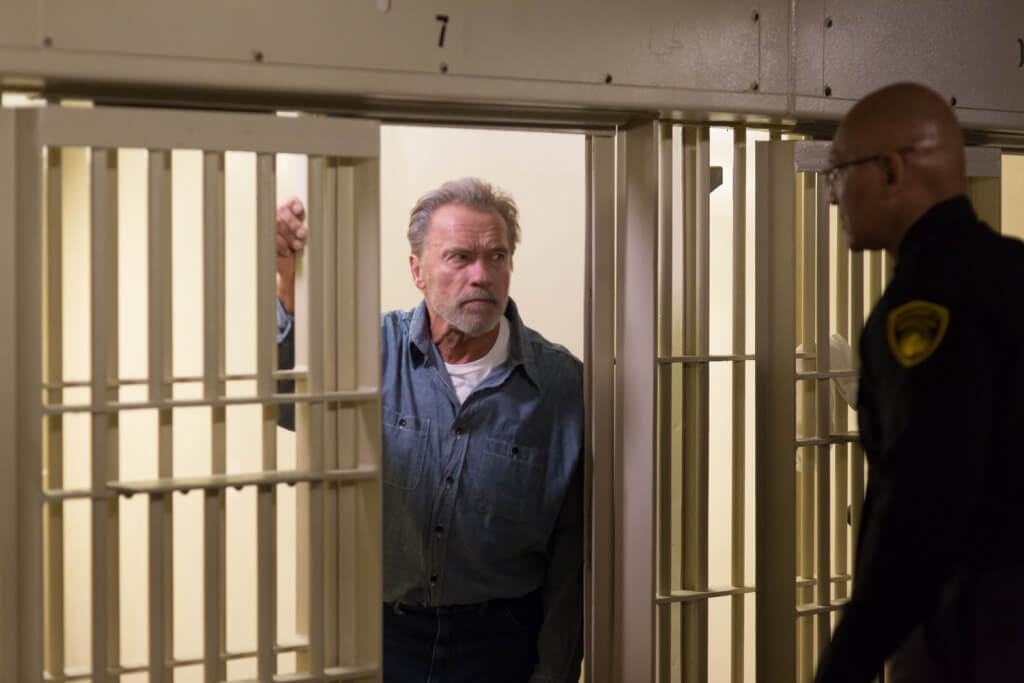
You have, however, enjoyed a lot of success in action films such as the Taken trilogy. Do you prefer those types of films or character-driven pieces?
I prefer character-driven films – action movies are a lot of fun, though, because it takes such teamwork. With movies like Taken, it’s like being on a sports team or something, there’s a primal sense of being one. With smaller films, that sense of community is also cool. They’re really two different animals, but action movies are really fun! It forces you to be present. I just did one with a lot of wire work, being dropped head first, three stories, over and over. So you’re really in the present moment, you don’t have a lot of choice!
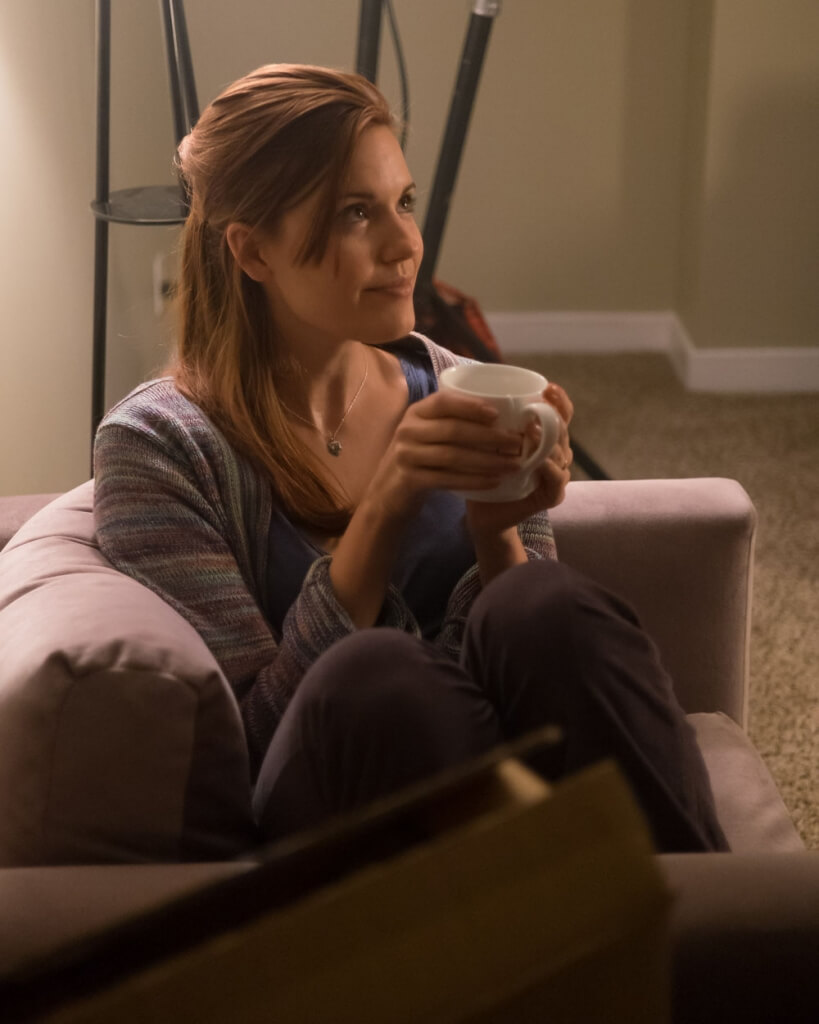
You’ve been consistently successful over your career, which can be difficult in an industry that doesn’t offer an enormous variety of roles for women. What’s the secret of such longevity?
It’s good to shake things up. In the last year, I’ve shot an action movie in Bulgaria; a really fun, broad comedy in New Orleans; and Aftermath in Ohio, which was really a focused and compressed process. I’m also producing my second feature right now. There are a lot of contrasts, I don’t know if there’s a preordained plan. Just learning new things and experiences.
Article by James Luxford

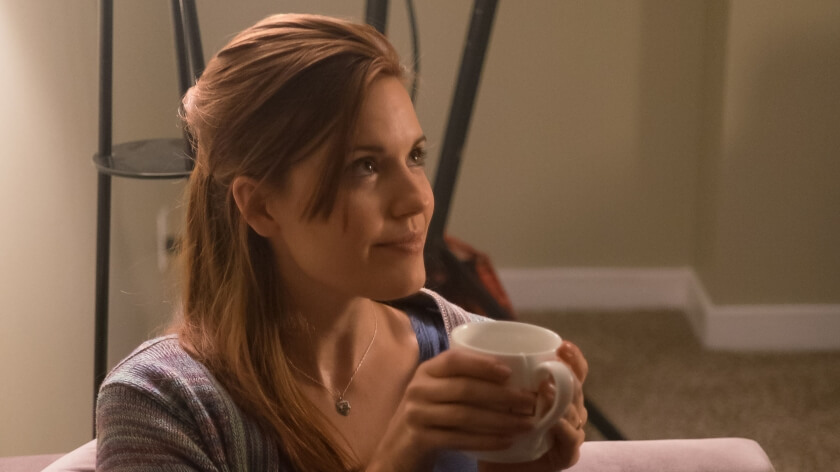








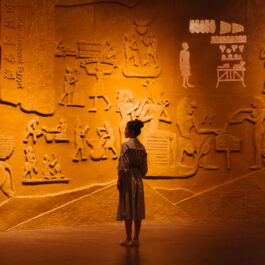



Sorry, the comment form is closed at this time.